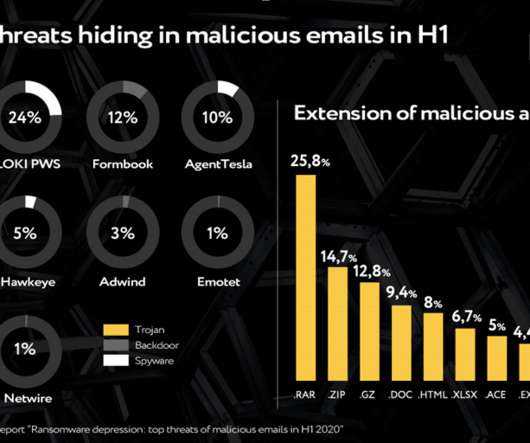Ransomware en masse on the wane: top threats inside web-phishing in H1 2020
Security Affairs
SEPTEMBER 18, 2020
Ransomware , the headliner of the previous half-year, walked off stage: only 1 percent of emails analyzed by Group-IB’s Computer Emergency Response Team (CERT-GIB) contained this kind of malware. Ransomware operators have focused on targeted attacks,choosing large victims with a higher payment capacity. About Group-IB.













Let's personalize your content